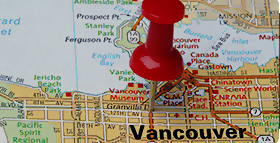Migrating to Japan involves several steps and considerations, and the process can vary depending on your purpose for moving, such as work, study, or family reunification. Here is a general guide to help you get started:
- Determine Your Purpose for Moving:
- Identify the reason you want to move to Japan, whether it’s for work, study, family reunification, or other reasons.
- Research Visa Types:
- Japan offers various types of visas, including work visas, student visas, family visas, and more. Research the specific visa type that matches your purpose for moving.
- Check Eligibility Requirements:
- Ensure that you meet the eligibility criteria for the visa you are applying for. Requirements can vary, so carefully review the conditions and documentation needed.
- Job Search (if applicable):
- If you are moving for work, secure a job offer from a Japanese employer. Some visas may require a job offer before you can apply.
- Language Proficiency:
- Depending on your visa type and the nature of your stay, you may need to demonstrate a certain level of proficiency in the Japanese language. Check the language requirements for your specific visa.
- Prepare Necessary Documents:
- Collect all required documents, such as your passport, visa application form, photographs, proof of financial stability, and any other documents specified by the Japanese embassy or consulate.
- Submit Visa Application:
- Apply for a visa at the Japanese embassy or consulate in your home country. The application process may include an interview, so be prepared to answer questions about your background and purpose for moving.
- Residence Registration:
- Upon arrival in Japan, you will need to register your residence at the local municipal office within 14 days. This process is known as “Residence Registration” or “Juminhyo.”
- Health Insurance:
- Enroll in the National Health Insurance (NHI) program, which is mandatory for all residents in Japan. Alternatively, if you have a specific type of work visa, your employer may provide health insurance.
- Cultural Adjustment:
- Familiarize yourself with Japanese culture, customs, and etiquette. Learning some basic Japanese phrases can also be helpful in daily life.
- Accommodation:
- Arrange for accommodation in Japan, either temporarily upon arrival or in advance if possible.
It’s essential to note that the process can be complex, and rules and requirements may change. Therefore, it’s advisable to contact the Japanese embassy or consulate in your home country or visit their official website for the most up-to-date and accurate information tailored to your specific situation. Additionally, seeking guidance from immigration experts or legal professionals can be beneficial.
By mr Gabriel






